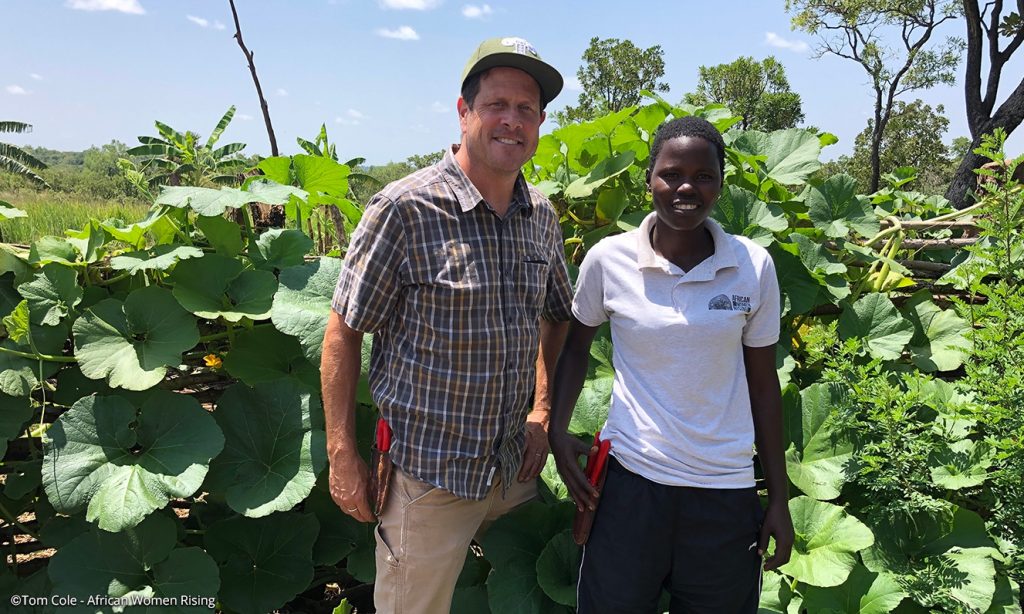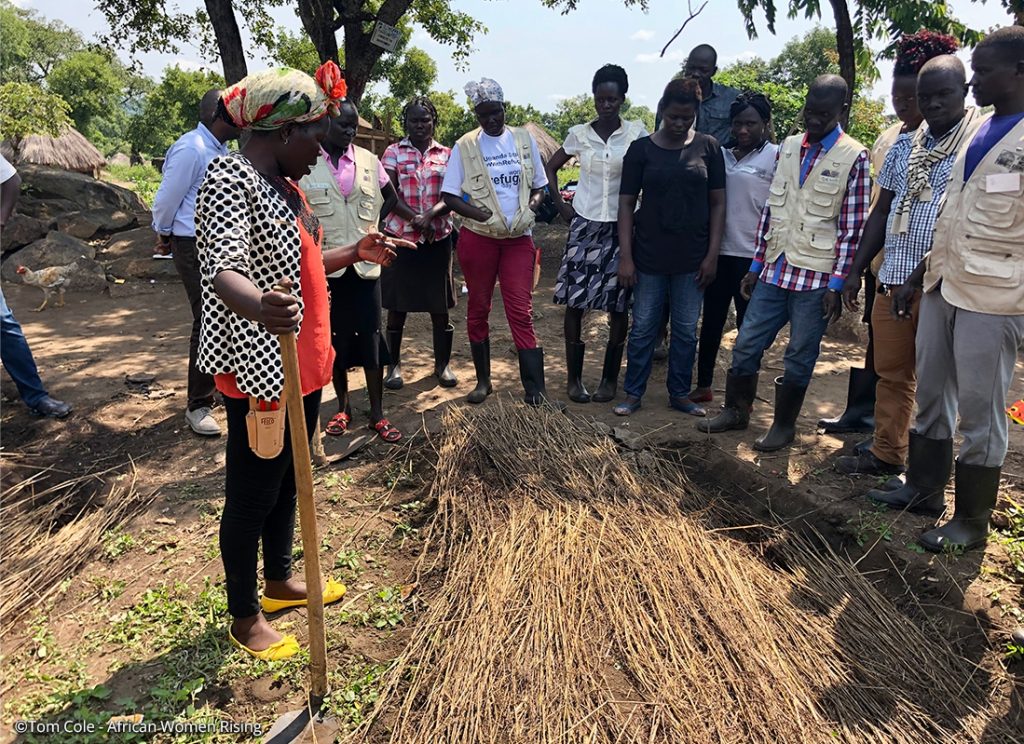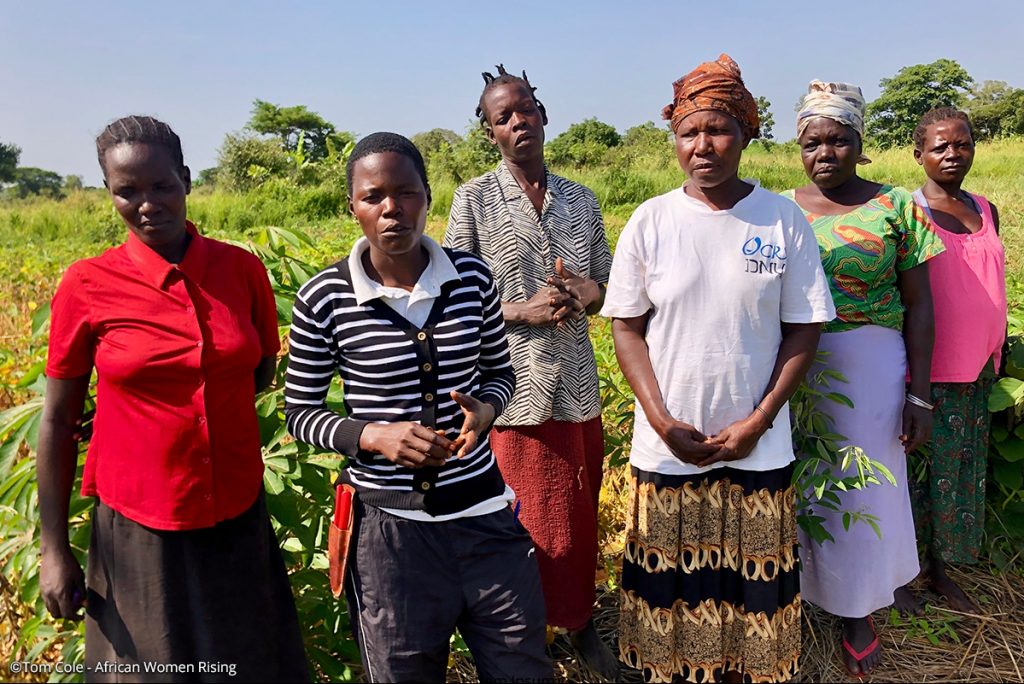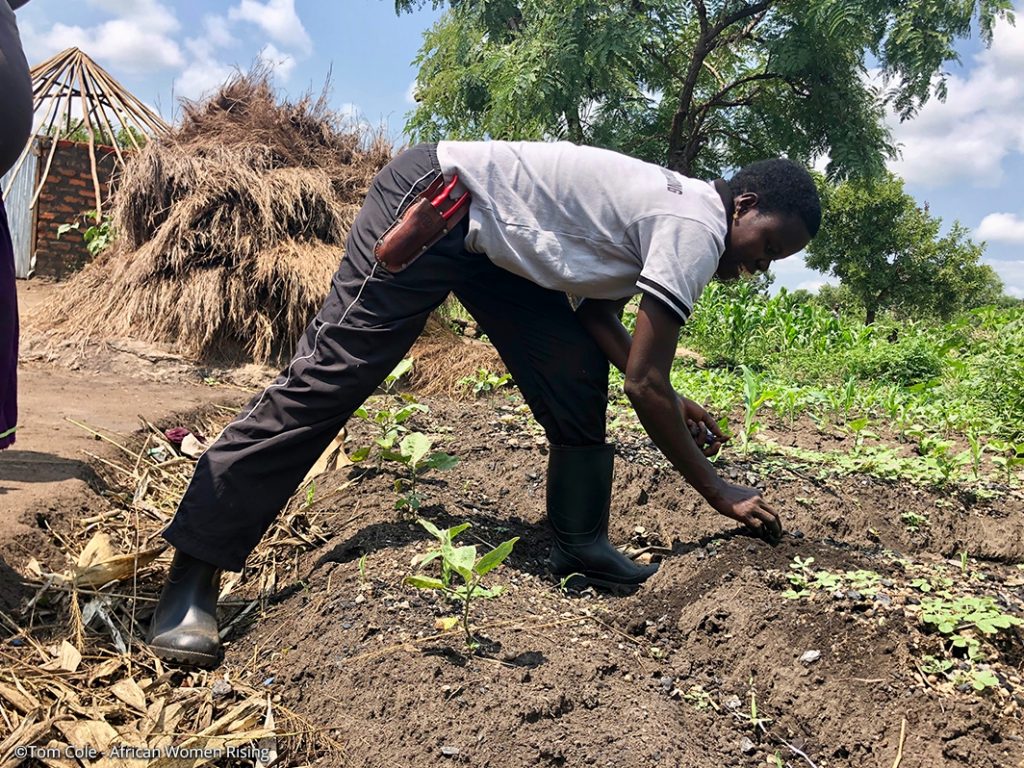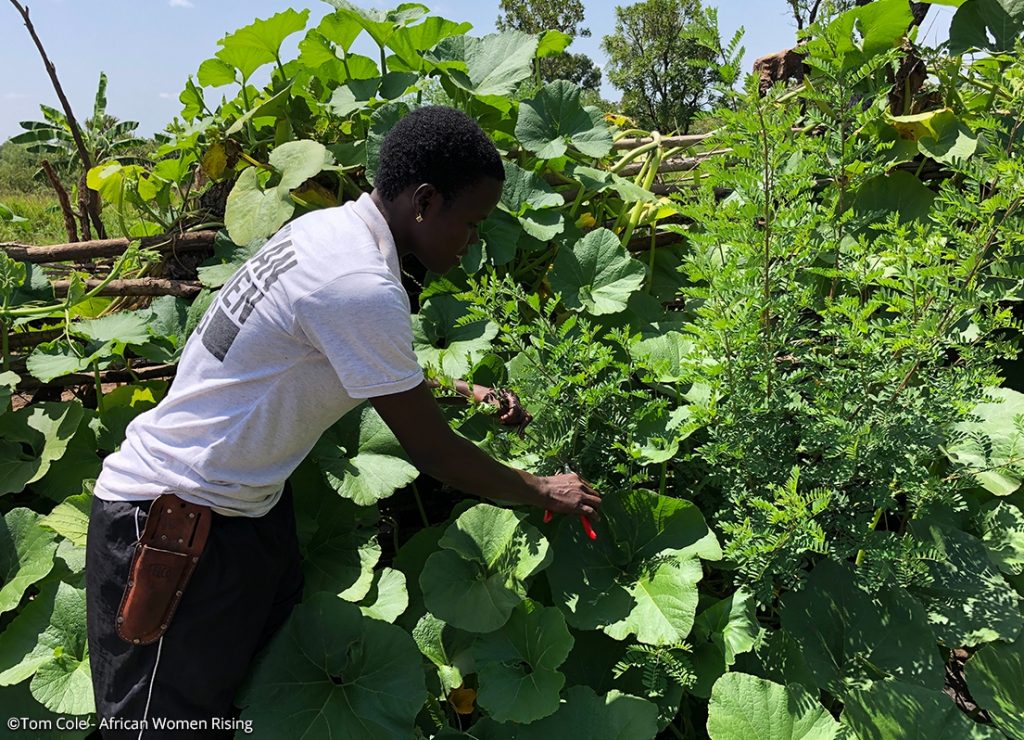Interview with Tom Cole Co-founder of African Women Rising and Humanitarian Activist

Exclusive Interview with African Women Rising co-Founder
FELCO: You have over 20 years experience in sustainable agriculture, community development and food security programs, notably in Sub-Saharan Africa. How did you get your start in agriculture and sustainability programs?
Tom Cole: I started as a volunteer tree-planter in post-war Mozambique in 1992. After a year they asked me to lead a community agricultural program focused on demobilized government and rebel soldiers. During those next three years in Mozambique I also earned my Permaculture Design Certificate at Fambidzanai, the Permaculture Research Center of Zimbabwe. Those experiences taught me the importance of community mobilization in some of the most challenging environments one could imagine. That early exposure to permaculture design and agroecology also gave me a critical understanding of soil fertility and water conservation as core foundations of real development.
Considering your humanitarian career path, what led you and Linda to start the AWR organization?
Linda Eckerbom and I met at that time in post-war Mozambique. She had worked with refugees in Angola and had built and was running a vocational school in Northern Mozambique focused on giving youth the skills necessary to survive and thrive in a post-war environment. We both spent some years after that working for and consulting with several larger humanitarian organizations as we continued to build our own skillsets and capacties, eventually settling in Uganda with our two children where I was based as Save the Children’s Africa Region Agricultural Advisor and later one the Country Directors in their Uganda office. Over time we began to see that the larger these organizations began to grow, the more they were losing their connections to the communities they were trying to serve. After some time talking Linda and I were inspired to build an organization based on the principles we had learned earlier in our careers. Now, 12 years later, that early inspiration has built an organization that directly impacts more than 90,000 people across Northern Uganda.
What does the availability of tools mean to the people participating the permagarden program in Uganda?
Having the proper tools gives African Women Rising staff the confidence to carry out their work in the best possible way. They are an extension of their professional identity and allow them to prune trees, cut shrubs and manage vegetable gardens with a level of precision and control many of them have never known before. This partnership with Felco has given the team great pride in their results and what they are trying to do to make life better for refugees and others affected by or recovering from conflict.
With a lot of tool manufacturers available, why did you choose FELCO as partner?
I had never thought about approaching another company for support. I’ve used Felco tools my entire professional career and they were always what I’d hoped to outfit our agricultural team in Uganda with. We’d managed to buy some hand pruners for senior technical staff but were never able to outfit all of our agricultural team given our limited resources were focused on getting more permagardens built and famers trained. This support and partnership from Felco is something I am incredibly proud of both personally and professionally.
Can you tell us about your own first experience with FELCO tools?
After Mozambique I spent three years apprenticing on and later helping to manage a 5-hectare organic farm in California. My key mentor there at Fairview Gardens, Michael Ableman, taught me the art and craft of pruning fruit trees: peaches, plums, nectarines, apricots, apples, Asian pears, figs, citrus, mulberries, cherimoyas, avocados. Several hundred trees each season and he had a well-used and cared-for pair of Felco 8s in his hand to do most of the work. Occasionally his Felco hand saw was called on to cut out diseased and dead wood. Ableman was the first to teach me the importance of having the right tool at hand, and I was lucky enough to have been given a pair of Felco 8s as I worked with him. I’ve now owned 6 pairs of Felcos in the years since, not because I’m careless but because over the last 23 years I’ve passed on Ableman’s gift to me. I’ve kept my original pair and holster but often carry a spare when I continue to travel and lead agricultural trainings, allowing me to pass them on to key farmers I’ve met along the way who haven’t had the access or opportunity to own their own pair of quality hand pruners. Felco 8s are now with farmers in Ethiopia, El Salvador, Mozambique, DR Congo and Uganda. With Felco’s support we now have 50 African Women Rising agricultural technicians in Northern Uganda proudly using their Felco tools.

